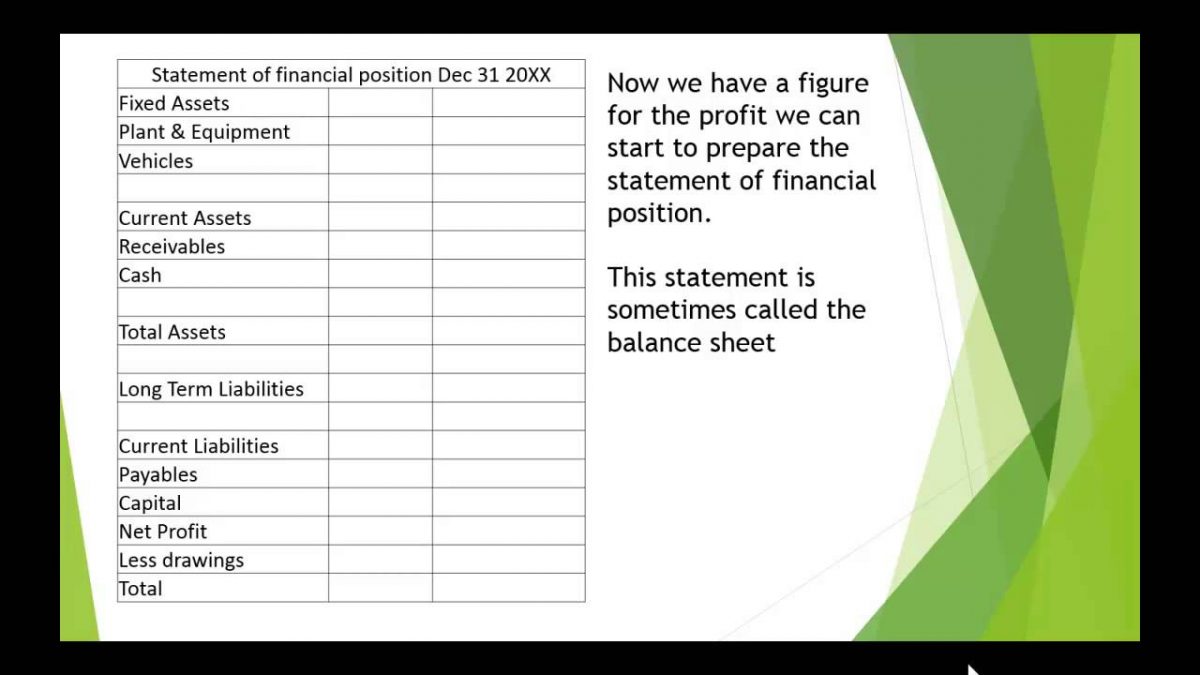How to Do Accounting as a Sole Trader
Being a sole trader comes with its fair share of advantages and challenges. As the sole proprietor of your business, you have full control and flexibility, but you also bear the responsibility of managing your finances and accounting. Proper accounting is crucial for the success and sustainability of your venture. In this guide, we will walk you through the essential steps to handle accounting effectively as a sole trader.
1. Separate Personal and Business Finances
One of the fundamental principles of accounting as a sole trader is to keep your personal and business finances separate. Mixing the two can lead to confusion, errors, and even legal complications. Here’s what you can do to maintain separation:
1.1 Open a Business Bank Account
Start by opening a dedicated bank account for your business. This account will be used solely for business transactions, such as receiving payments from customers and paying business expenses. It will help you track your business finances accurately and simplify tax reporting.
1.2 Use Separate Payment Methods
Avoid using personal credit cards or accounts for business expenses. Opt for business-specific payment methods, such as a business credit card or PayPal account, to streamline accounting and easily identify business-related transactions.
2. Keep Detailed Records
Accurate record-keeping is the backbone of successful accounting for sole traders. It helps you monitor the financial health of your business, prepare tax returns, and make informed decisions. Follow these steps to maintain detailed records:
2.1 Track All Income and Expenses
Record all sources of income, including sales, services rendered, and any other money coming into your business. On the other side, keep track of all business-related expenses, such as rent, utilities, inventory purchases, and office supplies.

How to do accounting as a sole trader?
2.2 Organize Receipts and Invoices
Properly organize and store receipts and invoices. Consider using digital tools or cloud-based accounting software to keep these documents secure and easily accessible. Categorize them for faster reference during tax time.
2.3 Reconcile Bank Statements Regularly
Reconcile your business bank account regularly to ensure that all transactions have been accurately recorded in your books. This process helps identify any discrepancies and prevents potential accounting errors.
3. Choose an Accounting Method
As a sole trader, you have the option to choose between two primary accounting methods: cash basis and accrual basis. Each method has its advantages and implications for your financial statements and tax obligations.
3.1 Cash Basis Accounting
In cash basis accounting, you record income and expenses when money physically enters or leaves your business. This method is simpler and more suitable for businesses with straightforward transactions. It provides a clear picture of your cash flow at any given time.
3.2 Accrual Basis Accounting
With accrual basis accounting, you record income and expenses when they are earned or incurred, regardless of the actual cash flow. This method provides a more accurate representation of your business’s financial performance but may be more complex to maintain.
4. Set Aside Money for Taxes
As a sole trader, you are responsible for paying income tax on the profits generated by your business. It is essential to set aside a portion of your earnings to cover tax obligations.
4.1 Understand Tax Deductions
Familiarize yourself with the tax deductions available to sole traders in your region. Deductible expenses can include business-related travel, office supplies, marketing expenses, and more. Keeping track of these deductions can significantly reduce your tax liability.
4.2 Consider Quarterly Tax Payments
Depending on your location and business income, you may need to make quarterly tax payments to avoid penalties and interest on unpaid taxes. Consult with a tax professional to determine if this applies to your situation. For CBD tax business finances see here.

5. Leverage Accounting Software
Modern accounting software can be a game-changer for sole traders. It simplifies many aspects of accounting, saving time and reducing the risk of errors.
5.1 Choose the Right Software
There are numerous accounting software options available, ranging from basic to comprehensive. Research and choose one that suits the needs and size of your business. Look for features like invoicing, expense tracking, tax calculations, and financial reporting.
5.2 Automate Repetitive Tasks
Take advantage of automation features to streamline repetitive tasks like invoicing, recurring expenses, and bank reconciliation. Automation reduces manual errors and allows you to focus on growing your business.
6. Seek Professional Help When Needed
While handling accounting as a sole trader is manageable, there may be times when seeking professional assistance becomes necessary.
6.1 Hire an Accountant
If you find yourself overwhelmed by the accounting responsibilities or want to ensure compliance with tax regulations, hiring an accountant can be a wise investment. An experienced accountant can provide valuable advice and help you optimize your financial practices.
6.2 Consult with a Tax Advisor
Tax laws and regulations can be complex and ever-changing. A tax advisor can help you understand your tax obligations, maximize deductions, and ensure accurate tax filing.
In conclusion, effective accounting is vital for the success of any sole trader. By separating personal and business finances, maintaining detailed records, choosing the right accounting method, setting aside funds for taxes, leveraging accounting software, and seeking professional help when needed, you can keep your business on a stable financial track and focus on achieving your entrepreneurial goals. Remember, good accounting practices provide you with valuable insights into your business’s financial health and help you make informed decisions for the future.

